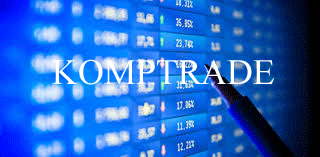The oil price (especially Brent) this week was influenced by relations between the United States and Iran, Russia and Saudi Arabia.

The Brent spot price gained 2.9% last week. On a weekly average, the Brent spot price stood at 99 $/b last week, up nearly 3% (WTI at 94.5 $/b, +2.9%). On a monthly average, it stands at $100/bbl, down 10% from one month to the next. The last few weeks have been rich in economic and “energy-political” events:
Progress in the Iranian negotiations.
Reaction of the Saudi minister to market developments, which pushed the price of oil up.
New escalations of violence in Libya, likely to lead to a further decline in oil production.
Firm statement last Friday by the American Central Bank in order to fight against inflation, statement with downward effects on the financial markets but without impact (for the moment) on the rise in the price of oil.
From an economic point of view, it is worth noting the announcement on August 22 of a fall over one month in Kazakh oil deliveries, but in limited proportions (export at 0.9 Mb/d against 1.3 Mb/ jprogrammed in August and September). In addition, in Europe, the drought is causing transport constraints on the Rhine, which forced Shell to reduce its production at the Rhineland refinery on August 18 (0.34 Mb/d).
Other elements that influenced the oil price this week |
Two of the three loading points in the port of Novorossiysk on the Black Sea must be repaired. This terminal makes it possible to export Kazakh oil (almost 90%) and some Russian oil via the Tengiz-Novorossiysk pipeline system (1.4 Mb/d). |
The situation is worrying enough, in the otherwise very tense European energy context, for a decree to be issued in Germany to promote rail transport if necessary. |
The United States has reportedly raised concerns with India that fuel refined from Russian crude has been exported to New York through deep-sea transfers |
On stock markets, risk management becomes problematic in a situation of high volatility. It induces a reduction in the number of open contracts (open interest), reducing market liquidity and aggravating volatility, which would not allow a price to be defined in line with the fundamentals. A criticism already mentioned in March by traders and regularly relayed in OPEC reports. |
The full report "Weekly Oil Dashboard August 29 2022" is available in our shop.
